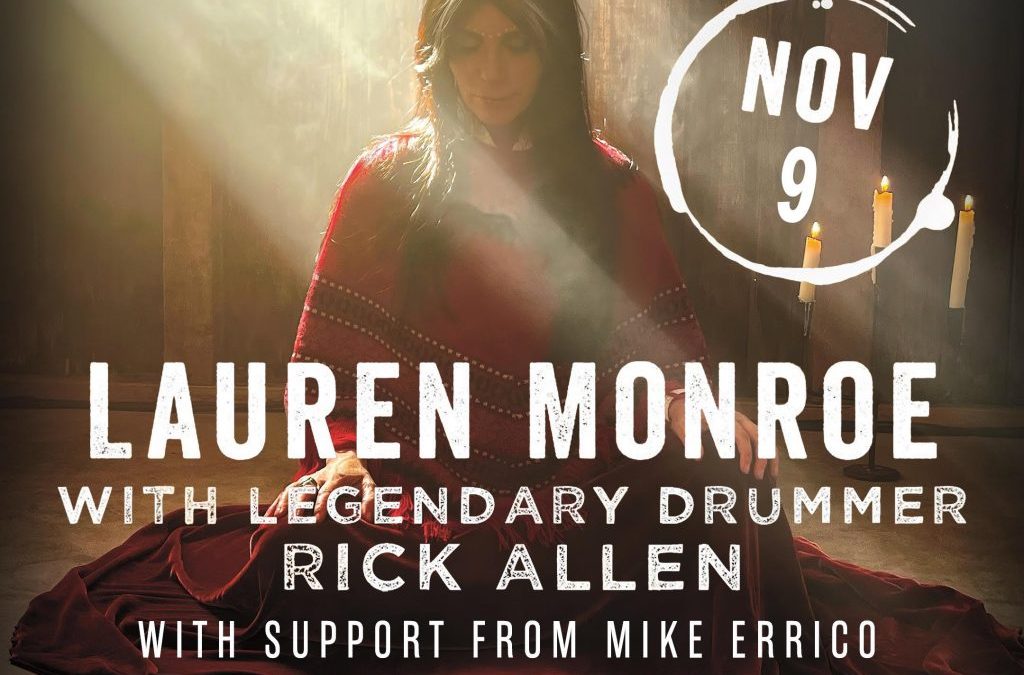
by Mike Errico | Nov 4, 2022 | live shows
Honored that @laurenmonroelive asked me to open her @citywinerynyc set on Nov 9. And yes, Rick Allen is the @defleppard Rick Allen – I couldn’t believe it, either. Only a half hour set, but that’s cool. Should be a great night. Click for tickets ...

by Mike Errico | Oct 13, 2022 | Text Journalism
Inside Fender’s Plan to Rock the Guitar Industry With New Hits and Classics CEO of Fender Musical Instruments Andy Mooney is placing bets on new avenues and repeat performances for an iconic American brand. By Mike Errico October 12, 2022 “At my very first town hall in Scottsdale, I’m getting introduced as the new CEO, and all they know about me is that I’ve worked at Nike, I’ve worked at Disney,” Fender chief executive Andy Mooney begins, settling into a story enhanced by his gruff Scottish accent. “And I start to tell them about the first Stratocaster I had, and how I modified it to place the metal pickup down like [Deep Purple guitarist] Ritchie Blackmore did, and how I added the extended tremolo bar, and so forth. And at the end of the presentation, one of the more tenured employees came up to me and says, “I really thought I was going to hate you…but you might actually get it.” He deadpans, “Which I took as a compliment.” In the midst of a very uncertain historical moment, guitars have been having a good run: the pandemic spiked instrument sales, reinvigorated hobbyists and broadened the fanbase to include new players. But this is more than a business success to Mooney, who spent his twenties pursuing a career as a professional musician before taking on corporate roles. He remains an avid guitar collector (he had his eye on Pink Floyd guitarist David Gilmour’s coveted Fender before it fetched a record price at auction), and since 2015, he has balanced a sensitivity to history with a sharp eye toward what’s next for the iconic brand....

by Mike Errico | Oct 4, 2022 | Uncategorized
Here’s the latest: My conversation with astrophysicist Janna Levin on the art and science of repetition, whether it’s in a three-minute pop song or a spiral galaxy 300 million light years away. Some of it is excerpted from Music, Lyrics, and Life: A Field Guide for the Advancing Songwriter, but I added nuggets, because the James Webb telescope is sending back mind-blowing images, and because what Janna gave me was more than an explanation of musical repetition—it was a new interpretation of reality itself. What Pop Stars and Actual Stars Have in Common A songwriter and an astrophysicist discuss the art and science of repetition By Mike Errico (excerpt) Songwriters and astrophysicists have an affinity for repetition. It’s frequently used as a tool in music, but for astronomers, there seems to be an assumption that repetition implies forces that are purposefully at work, perhaps even intelligently so. Absolutely. One of the things SETI—the Search for Extra Terrestrial Intelligence—does is that they look for very regular mathematical signals because they assume that nature won’t provide such a thing—nature’s messy, and so nature can’t do anything so regular. So if you find an incredibly regular signal, you’re hoping that it was sent by somebody who controls their environment, who made it go that way. What does it say about humans that we’re so intrigued by repeated information? I am a big believer that we inherit mathematical structures because math made us. Evolution is guided by forces of nature—that’s how we evolve—and those forces, not surprisingly, leave an imprint in the structure of our minds. Of course they have to be mathematical. And in some...

by Mike Errico | Oct 4, 2022 | Music Lyrics and Life, Photo
I’ve been kind of confused lately as to what I actually do. This picture kind of encapsulates it....

by Mike Errico | Sep 9, 2022 | Music Lyrics and Life, Text Journalism
American Songwriter is running an excerpt from Music, Lyrics, and Life. This time, it’s my interview with Nashville super-producer Jay Joyce about how to embrace, and even create, beautiful mistakes. I was proud of this one: Jay Joyce and the Power of Mistakes By Mike Errico If there’s anything that’s gotten more powerful in the songwriter’s toolbox, it’s the ability to erase blemishes. Writers and singers—especially singers—hide flaws with ever-improving software, thinking the song will benefit from perfection because that’s what the listener wants. Jay Joyce has been fighting this songwriting tendency and pumping out perfectly imperfect songs for years. His studio, a converted church in East Nashville, was constructed specifically to catch what makes a song’s performance real, and in this way, he’s crafted hits for Miranda Lambert, Eric Church, Orville Peck, Brandy Clark, Declan McKenna, Carrie Underwood, Keith Urban, and a host of others. His philosophy—keep the mistakes—sounds retro, maybe even careless; and yet, Jay’s approach bypasses the sterility of modern songwriting, and creates music that is urgent, dangerous, and alive. It’s as if mistakes are the future of authentic art. Mike Errico: How do you get the best work out of writers and artists? Jay Joyce: I don’t have a vocal booth. People come in, and they’re like, “Where do I sing?” And I’m like, “Wherever you want.” I don’t have a control room—I never did like that. We don’t have to be, like, “Put your guitar down, come into the control room.” I can go on about the way studios are designed. It’s just stupid…. READ THE REST AT AMERICAN...






